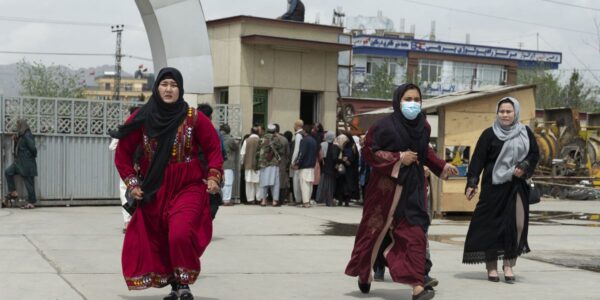
Deadly attacks on Afghan minorities show the Taliban isn’t keeping its promises
A series of attacks this week throughout Afghanistan killed at least 77 people, including children. At least one or most likely mostly carried out by ISIS Khorasan (ISIS-K), the affiliation of the active Islamic state in Afghanistan and Pakistan. The attack that destroyed increasingly disturbing a country that had fallen free of the economy and further enhances the doubt that the Taliban can protect the people of Afghanistan – especially minorities – from violence and terror.
The attack began Tuesday, with a double bombing at the Abdul Rahim Shaheed Middle School and around the Mumtaz Education Center, both in the Kabul Capital. There were at least six deaths and 17 injuries at the Abdul Rahim Shaheed Middle School in the Shi’a and Hazara Dasht-E-Barch dominated, Al Jazeera reported Tuesday. While no group claims to be responsible for the attack, ISIS-K has been known to target the dasht-e-mind in the past. Government workers in Kunduz Province were targeted this week as well as the claimed by ISIS-K.
The attack continued Thursday, with a bombing at a Shia mosque in Mazar-e-Sharif, in North Afghanistan. The attack, which was claimed by ISIS-K on Friday, killed at least 31 people and was injured more, Pamela Constable reported on the Washington Post Friday. The Associated Press places the number of people dead much lower, on 12, in the Saturday report. In a statement on Friday which claims to be responsible for the attack, ISIS-K said that the bomb was in the bag left in the mosque Seh Documents; It exploded when the mosque was filled with worshipers. “When the mosque was filled with prayer, explosives were blown away from a distance,” said ISIS-K’s statement, also accused that 100 worshipers were injured. Around the same time, the New York Times reported Friday, ISIS-K attacked a bus in Kunduz Province, killing four and injuring 18.
After the Taliban government announced that it had captured the “mastermind” of the Mazar-E-Sharif bombing in Balkh Province on Friday, an explosion at a mosque in Kunduz Province killed at least 30, and a mines went near the market in Kabul, ending the week that had evaded more a lot of destruction.
It is unclear whether ISIS-K is behind all attacks, but this week’s attack shows that the Taliban has no control of the security situation in Afghanistan as well as leadership that indicates after our troops and NATO leave the country in August, or not Too interested in providing protection to minorities. That does not help the problem that this country faces destabilization caused by economic sanctions against Taliban leaders, coupled with the persecution of Taliban against women, journalists, human rights workers, and other groups. But the inhibition of the Taliban did send a strong message.

